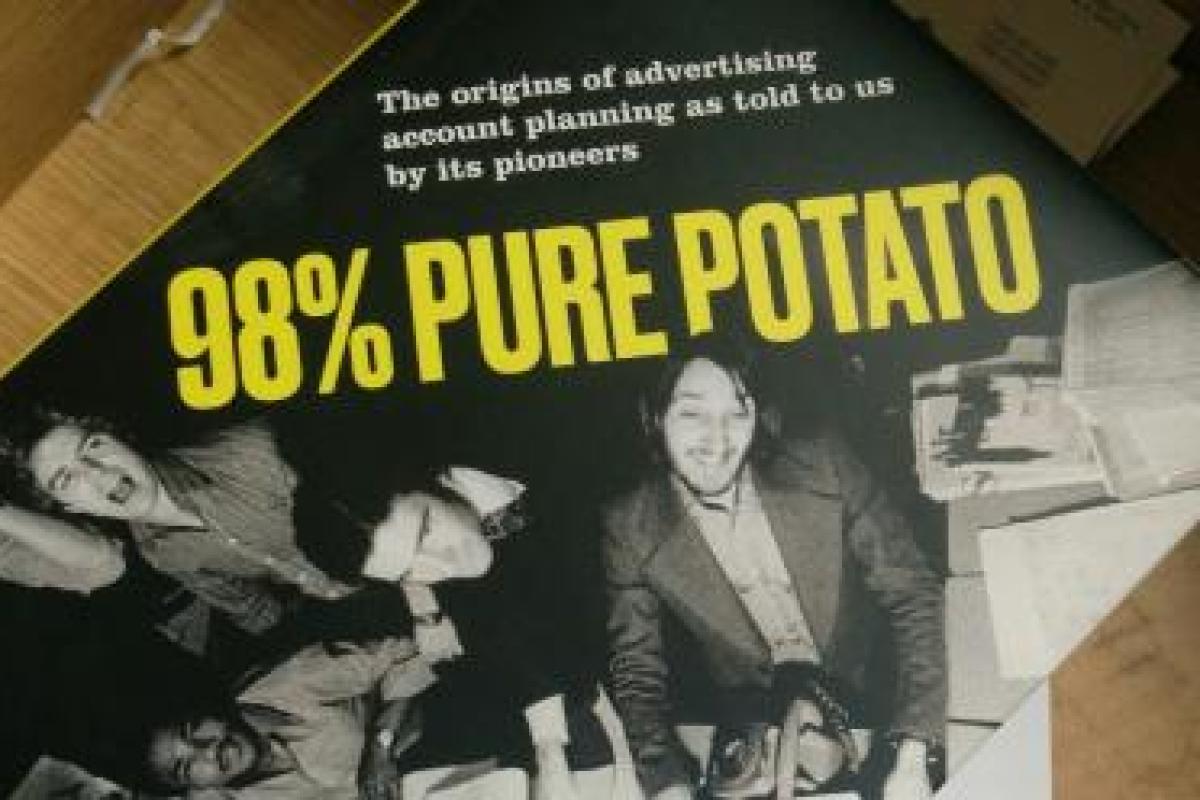When I first encountered 98% Pure Potato I didn’t really know what I would get, but I knew what I expected: to be captivated by a deep dive into the advertising archives of the disruptive creative thinkers of our time and their path to shaping the industry, brought to life with examples of the brand work that has helped the evolution of planning. So, with a grain of scepticism in my mind about whether my expectations would be met, I began reading it.
The book highlights the shift of the creative industry towards brand-building advertising as driven by Stephen King and Stanley Pollitt. Both of them came to democratise strategic thinking by unlocking a better way to use research and other data in advertising development in order to move things forward, not just measuring back.
John Griffiths and Tracey Follows thoroughly describe the birth of account planning by structuring their findings into 5 main sections:
- The context: the advertising scene in the 50s and the UK’s role as the catalyst to change
- Beginnings: how a curious experiment unlocked new opportunities and triggered experts to question and rethink the approach to advertising
- The cast: the people that joined the new thinking movement and set the foundations for things to come
- The professionalisation of planning: the different branches that planning began to influence within advertising and beyond
- What next: today’s shift of planning from people-centric to process-driven, from intellectualism to immediacy
The impression I was left with is that 98% Pure Potato is an in depth journey (perhaps too detailed for my taste) of the evolution of account planning explained though the dynamics and migration of people within agencies and the thinking of the time. Expecting to get under the skin of those thought leaders via plenty of brand examples, I felt like I was given a history lesson instead.
Coming from a planning background in brand design, it is evident that planning (strategy, creative planning, or any other terminology that you might encounter today) has come a very long way. Over the decades it has become pivotal to the creative industry, helping the different facets of it shape stronger and more relevant brands by coming up with sharper creative solutions to business problems. In design today, just like in advertising, strategic thinking still captures that ‘detective’ like spirit and the lateral and logical approach that set the foundation for planning in the 60s. Regardless of the agency, planners have been and will continue to be indispensable brand integrators.
Although more historical in outlook, the book was fascinating as it truly grounds planning as a necessity and visceral element for the creative industry to deliver strong, relevant brands over time.
As for the title of the book 98% Pure Potato, I will leave it to the readers to discover the enigma behind it.
